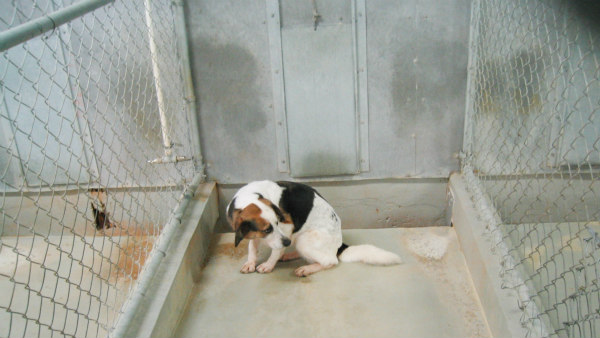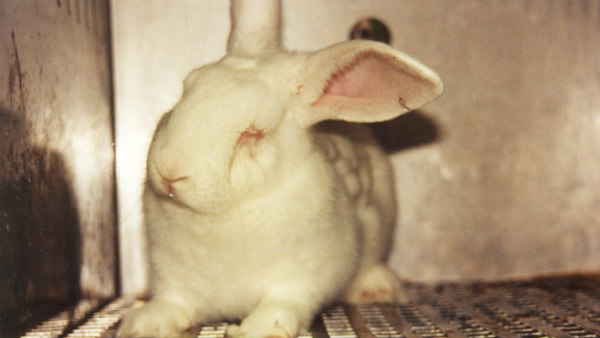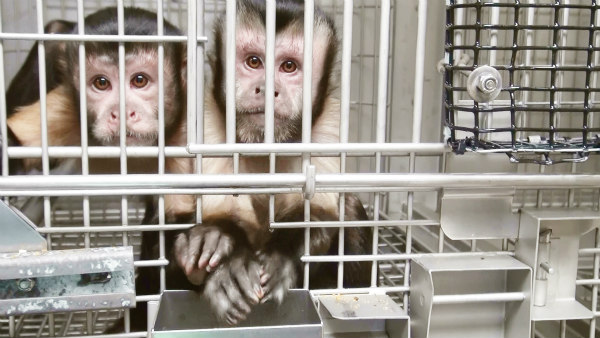TAMU Board Meeting, The American Anti-Vivisection Society, Cut It Out Challenge, Alternatives Research & Development Foundation (ARDF)
AAVS's (The American Anti-Vivisection Society) BUILD IT! campaign assists sanctuaries
with expanding housing and habitat. This year, all funds raised will go
to Chimp Haven, the National Chimpanzee Sanctuary, which currently cares for
over 200 residents. Chimp Haven needs to take in hundreds more chimps who are
still housed in research facilities. The U.S. government will provide
partial funding for their care, but there's a catch: there is no money for
construction.
The proposed expansion at Chimp Haven will cost millions of dollars. And that important project can’t proceed until they demonstrate that the needed funds can be secured.
You can make a difference for those hundreds of chimps still in labs right now. Working together, we can build a brighter future for animals who deserve better lives.
AAVS’s mission isn’t complete until all animals in labs are free. With your support of BUILD IT!, we will work to ensure that every chimpanzee is given a second chance in a sanctuary.
Today is the final day of "Cut It Out"—PETA's Animal Test Challenge. Will you help animals who are suffering in laboratories right now?
Please don't let abused animals be ignored—unseen and unheard by the public—as they languish in fear and pain for cruel, archaic experiments.
 |
Don't ignore the dogs who are trapped inside tiny laboratory cages, bred to suffer tremendously in painful and deadly experiments. Make a gift now.
 |
 |
Don't ignore the difference you can make. With help from generous people like you, PETA US was able to award a grant that enabled expert scientists to travel to China and offer their guidance on the replacement of cruel animal tests—including the archaic eye irritation test in which substances are dripped into rabbits' eyes, causing irritation, pain, and even blindness. The Chinese government has signed a memorandum of understanding so that these scientists can expand their research in China—a huge step toward embracing non-animal test methods.
Every inhumane animal test that we help stop or replace with effective, non-animal methods—and every company that is persuaded to stop shipping animals to laboratories—is a reminder of what's possible when kind people take action.
In contrast, nothing is achieved through inaction.
Please use this last day of "Cut It Out"—PETA's Animal Test Challenge to make a gift to help animals who are suffering right now in laboratories. Donate before tonight's deadline!
| |||||||||||||
Strengthen Oversight of Animal DealersNO! And you can help make sure that this doesn’t happen. USDA is considering changing its licensing regulations under the AWA and is asking the public for input on the matter by November 2. Existing regulations mean that animal dealers have their licenses automatically renewed, including those who have a history of violating the AWA. To know this is a problem, we need only look at random source Class B dealers, which can legally acquire dogs and cats from pounds and then sell them so they can be used in research. AAVS has documented several incidents in which random source dealers with recent AWA violations have had their licenses renewed, allowing them to stay in business, and putting lost/stolen dogs and cats at risk of being sold to a lab. Current administrative regulations present barriers to common sense limits on licensed entities that are chronic violators. Changes are needed, but, not surprisingly, there is a great deal of resistance from the businesses that have licenses. YOUR voice for the animals is needed now to make sure USDA follows the right path. USDA needs to streamline how it regulates and licenses animal dealers. It also needs to be diligent in overseeing those with a history of violating the law and harming animals—it’s their job! |
| TAKE ACTION NOW |
 |
Advancing Alternatives in BrazilThe Institute for In Vitro Sciences held a training course on the use of two internationally recognized in vitro methods. Not only did attendees receive hands-on training, but there was also discussion regarding the practical issues involved in adopting the use of alternatives, such as building an infrastructure appropriate for regulatory review. In recent years, Brazil has shown interest in ending the use of animals to test cosmetics and other products. The event was supported by a grant from Colgate-Palmolive.READ MORE → | |
Veterinarian Using Training Alternative AwardedThe most recent issue of The Veterinary Page reports that Dr. Stanley Kim, associate professor at the University of Florida, has won the 2017 Zoetis Distinguished Veterinary Teacher Award. Recognized for his role to advance veterinary medical education, Dr. Kim trained his students using a new, life-like synthetic canine model that is manufactured by SynDaver Labs, which developed the technology. Dr. Kim and his colleague Dr. Brad Case consulted with the company. Dr. Case was a 2012 ARDF grant recipient to develop alternatives to the use of animals in surgical training for veterinary studentsREAD MORE → | |
Have you seen it?In September, AAVS affiliate, the Alternatives Research & Development Foundation, launched its new website and a new initiative called the AiR (Alternatives in Research) Challenge. While ARDF’s annual grants and special Cave Award often have focused on alternatives in toxicity testing, the AiR Challenge focus is on accelerating development of alternative, non-animal methods in biomedical research, where there is the potential for the most impact.READ MORE → |





















